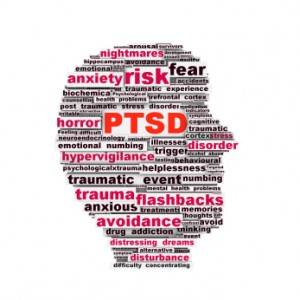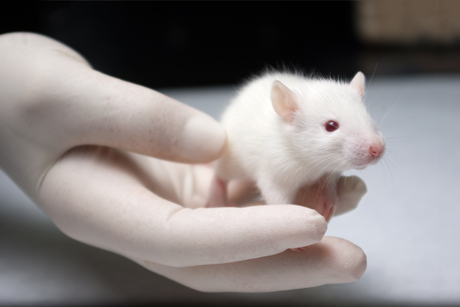Type of Trauma Affects Gene Transcription Effects in PTSD
 In a 2017 article in the journal Neuropsychopharmacology, researcher Michael S. Breen and colleagues analyzed five separate studies of post-traumatic stress disorder (PTSD) and found that sex and type of trauma affected the immunological pathways that changed with PTSD. People with PTSD showed disruptions in gene expression in specific immunological pathways depending on what type of trauma they had experienced.
In a 2017 article in the journal Neuropsychopharmacology, researcher Michael S. Breen and colleagues analyzed five separate studies of post-traumatic stress disorder (PTSD) and found that sex and type of trauma affected the immunological pathways that changed with PTSD. People with PTSD showed disruptions in gene expression in specific immunological pathways depending on what type of trauma they had experienced.
Men exposed to combat traumas showed downregulation in a pathway related to wound healing, while men who were exposed to interpersonal traumas had upregulation in a signaling pathway mediated by the inflammatory marker IL-12. Women exposed to interpersonal traumas showed upregulation of two pathways—one related to lipid metabolism and the other related to MAPK (or mitogen-activated protein kinase) activity.
The participants with PTSD also showed a lot of the same disruptions across all types of trauma, including disruptions that affected cytokine, innate immune, and type 1 interferon pathways.
These data show that immune dysregulation and inflammatory pathways play a role in the pathophysiology of PTSD.
Anti-Inflammatory Treatment Prevents the Effects of Stress in Female Rats
Women are more likely than men to experience depression, and this difference begins in adolescence, when girls show more sensitivity to stress. Researchers are studying how animals react to stress in the hopes of learning what mediates these gender differences in mental illness.
At a recent scientific meeting, researcher Jodi Lukkes and colleagues presented a recent study of stress and inflammation in female rats. The rats were exposed to different types of stressors. Some were separated from their mothers for four hours a day during the first 20 days of their lives. Later, some rats were exposed to an acute stressor, witnessing another rat receiving shocks. All the rats were placed in a box in which they could escape a shock by jumping to the other end of the box, in order to measure their motivation. Because drugs that inhibit the inflammatory enzyme COX-2 had reversed the effects of maternal separation in earlier studies, the researchers also treated some rats with these anti-inflammatories.
The researchers found that anti-inflammatory treatment could prevent behavioral consequences of stress in adolescent female rats. Witnessing another rat being shocked brought about deficits in motivation (a depression-like behavior), but in rats that had received treatment with a COX-2 inhibitor, these deficits were reduced. The COX-2 treatment was only helpful to rats that had experienced an acute stressor in their lifetime, either maternal separation in infancy, or witnessing another rat receive the shocks. A history of stress was required for the anti-inflammatories to improve motivation.
Lukkes and colleagues hope that this research begins to clarify the relationship between stress, inflammation, and gender. This may eventually lead to new targets in the treatment of depression.
Ratio of Cortisol to CRP May Affect Depression
New research suggests that the ratio of cortisol to C-reactive protein (CRP), a marker of inflammation, may be a biomarker of depression that affects men and women differently. In women, lower ratios of cortisol to CRP were associated with more severe depression symptoms, including poor quality sleep, sleep disturbances, and decreased extraversion. In men, higher ratios of cortisol to CRP were associated with more daytime disturbance and greater anxiety. The study by E.C. Suarez et al. was published in the journal Brain, Behavior, and Immunity.
Further work must be done to confirm whether low cortisol and high inflammation predicts depression in women, while the opposite (high cortisol and low inflammation) predicts depression in men.
Among Bipolar Patients, Women Spend More Time Depressed Than Men Do
An article by Lori Altshuler et al. (including this editor Robert M. Post) published in the American Journal of Psychiatry in 2010 presents research that among bipolar patients studied over a period of 7 years, women spent more time than men depressed. Women had higher rates of rapid cycling and of anxiety disorders, both of which were associated to higher rates of depression.




